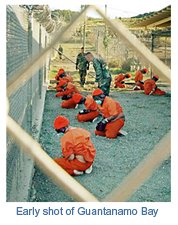(Initially published in the Japan Times, October 5, 2008)
The report of the “Panel on the Reconstruction of the National Security Legal Foundation,” commonly known as the Yanai Report, argues that a reinterpretation of Article 9 of the Constitution is necessary to permit Japan to participate in collective self-defense and collective security operations. Both activities are currently understood to be prohibited by Article 9, Section 1. The report reveals, however, a fundamental flaw that entirely undermines the legitimacy of the panel’s analysis.
The panel was created in April 2007 by then-Prime Minister Shinzo Abe to consider the need for a “reinterpretation” of the Constitution. The panel was composed of 13 prominent academics, former diplomats and government bureaucrats who were predominantly experts in international relations, politics and national security. It included only one constitutional scholar. The panel was criticized for being dominated by policy hawks who were on record as favoring constitutional revision. The chair, Yanai Shunji, a former ambassador to the U.S. and now a professor of Chuo University, submitted the panel’s report to the Cabinet in June.

 to use space for the purposes of contributing to national security. This constituted a marked departure from an almost 40 year old policy of strict non-military use of outer space.
to use space for the purposes of contributing to national security. This constituted a marked departure from an almost 40 year old policy of strict non-military use of outer space.